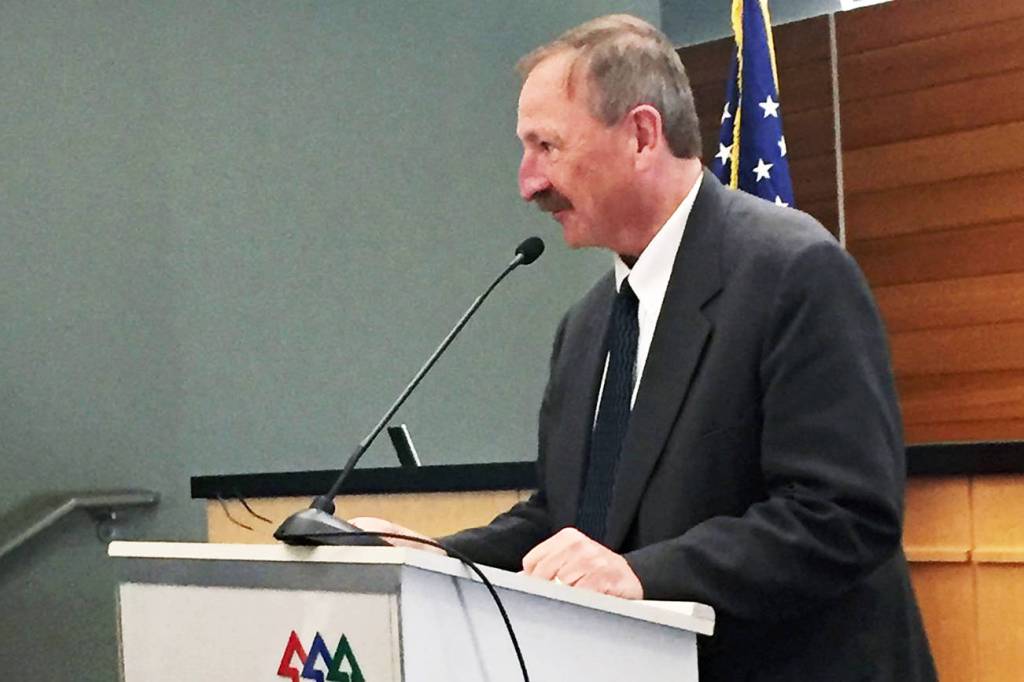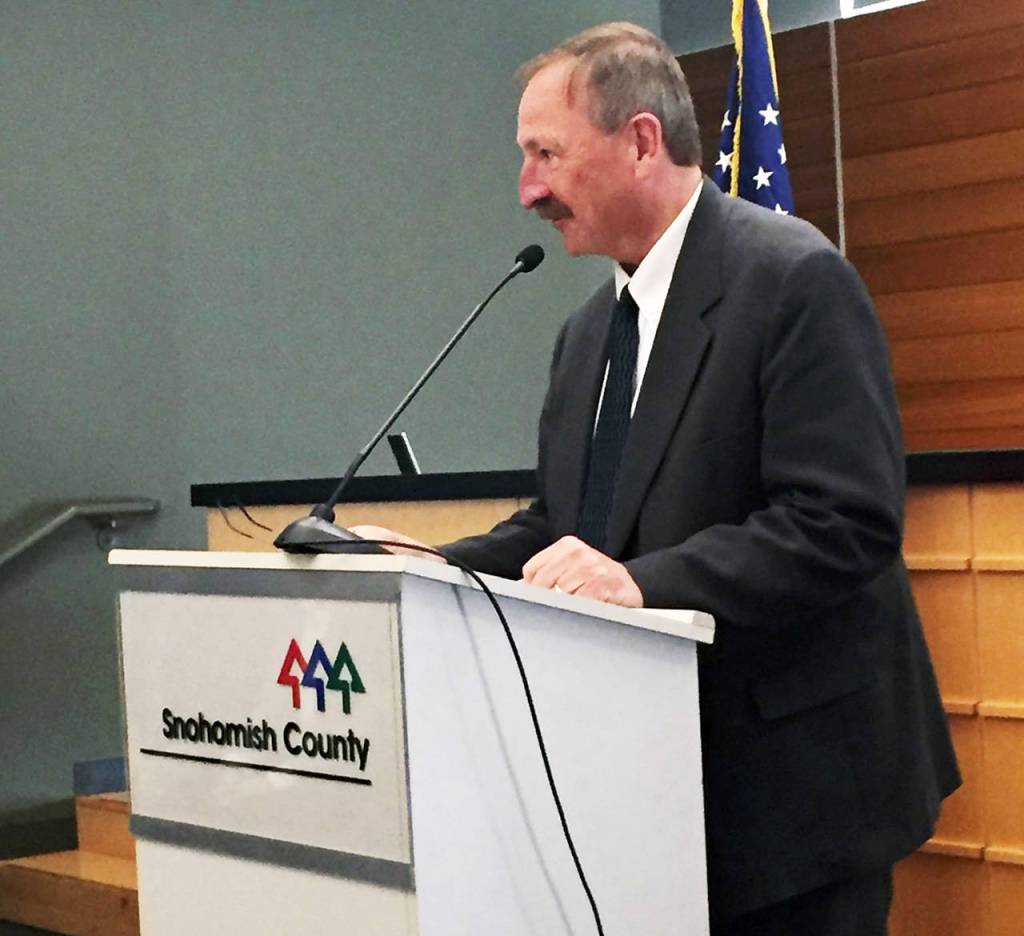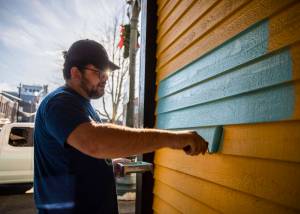$268M county budget takes aim at street crime, climate change
Published 1:30 am Tuesday, September 24, 2019


EVERETT —New ways to keep people safe, ease the housing crunch and heal the environment could be in store for Snohomish County next year.
There isn’t a whole lot of money to pay for those goals, though.
County Executive Dave Somers released his 2020 spending plan Tuesday. While avoiding any increase to the county’s general property tax levy, the executive hoped to make progress combating some of the region’s most bedeviling issues.
“Snohomish County is doing enormously important work in our community,” Somers said. “Over three-fourths of our general fund budget goes to our law and justice system. Our public safety priorities must always be paramount. Of course, we also have other core responsibilities that we must support.”
Somers delivered his speech to a crowd of mostly county employees and elected officials at a county administrative building in downtown Everett.
He outlined an operating budget of nearly $268 million, some $4.2 million more than last year. Strong sales-tax growth accounts for most of the increase. When factoring in grants, fee-supported services and all other sources of money, total county spending was expected to approach $1 billion. The plan would fund nearly 3,000 employee positions, 14 more than in 2019.
Addressing crime and drug problems was a major plank of Tuesday’s speech.
“We know how street crime has demoralized some of our residents,” the executive said. “We are all tired of seeing the negative impacts of addiction in our community: theft, break-ins, needles in parks.”
Two years ago, county administration teamed up with the sheriff’s office and the Snohomish Health District to develop a data-driven strategy to approach opioid problems. Going forward, the executive proposes using that multi-agency framework to distribute small grants to help cities and nonprofits address related needs.
Other law and justice initiatives in the coming year include work to build a new sheriff’s office precinct at Cathcart to replace current space in Mill Creek, and converting an underused part of the Denney Juvenile Justice Center in Everett into a substance-abuse treatment facility.
Those projects have been planned for years.
Unfunded for now is Prosecuting Attorney Adam Cornell’s request for resources to prosecute lower-level drug cases, which were discontinued under his predecessor.
Pursuing cases under the current 2-gram charging threshold might require additional resources beyond the prosecutor’s office.
Also on hold is District Court Judge Anthony Howard’s community court proposal.
Rather than focus on convictions, the court Howard envisioned would have sought to connect people to services, before they went on to commit more serious crimes.
Instead of taking on those projects one by one, Somers wants to see a study that would take “a holistic look at our justice system” for programs providing the greatest benefit.
“By supporting the law and justice study, we will be able to work together on reforms and develop a comprehensive strategy to improve our entire system,” he said.
Another study, announced earlier this year, could inform solutions to the region’s shortage of affordable housing. The report from the Housing Affordability Regional Taskforce, or HART, is expected by the end of the year.
Somers’ speech also detailed environmental goals. They include pushing ahead with a multimillion-dollar estuary restoration project at Meadowdale Beach County Park, which could break ground in the next couple of years, and continuing the Healthy Forests Initiative launched this spring with the nonprofit group Forterra with the aim of planting 1 million trees during the next two decades.
The executive also plans to establish a Climate Change Advisory Committee to prepare for the reality of changing weather patterns.
“As a scientist, I have no doubt that climate change is happening and that we are probably seeing some of the effects of that change,” Somers said. “Because of our location, we will have significant impacts from climate change, including rising waters on the Salish Sea, increased risk of wildfires and floods, warming weather, and negative impacts on species such as orca and salmon.”
The budget anticipates the possibility of an economic downturn.
County leaders last year socked away a significant sum — some $2.5 million — in a rainy-day fund. That money could be used to weather a temporary budget crunch, without the shock of massive layoffs, as happened in Snohomish County in 2008.
For next year, Somers recommends adding almost $1 million more to the emergency fund.
The executive’s budget includes no increase in the county’s general property tax levy. Most local cities and other governments in the region raise their budgets by 1% practically every year. County leaders last increased the general property tax levy three years ago, by 1.5%.
The portion of property tax that pays for road work, however, will increase by 1% for people in unincorporated areas under Somers’ plan.
The County Council will pass the final version of the budget. Councilmembers expect to spend the next weeks gathering information from department heads and elected leaders.
County Council Chairman Terry Ryan said he wants to focus on infrastructure investments, while also making sure the county spends within its means.
“The calendar I put in front of the council indicates we’re going to vote on Oct. 30,” Ryan said. “As of right now, that’s our target.”
Noah Haglund: 425-339-3465; nhaglund@heraldnet.com. Twitter: @NWhaglund.






